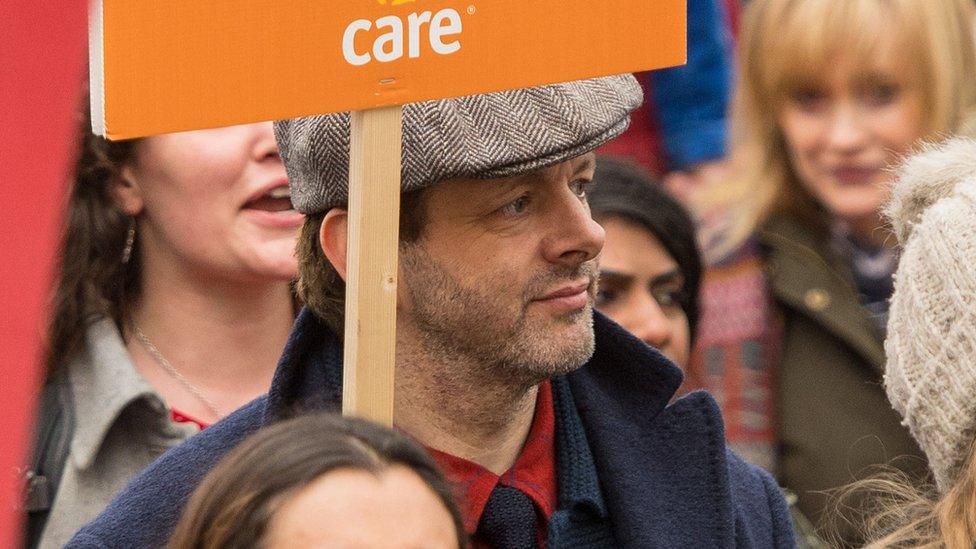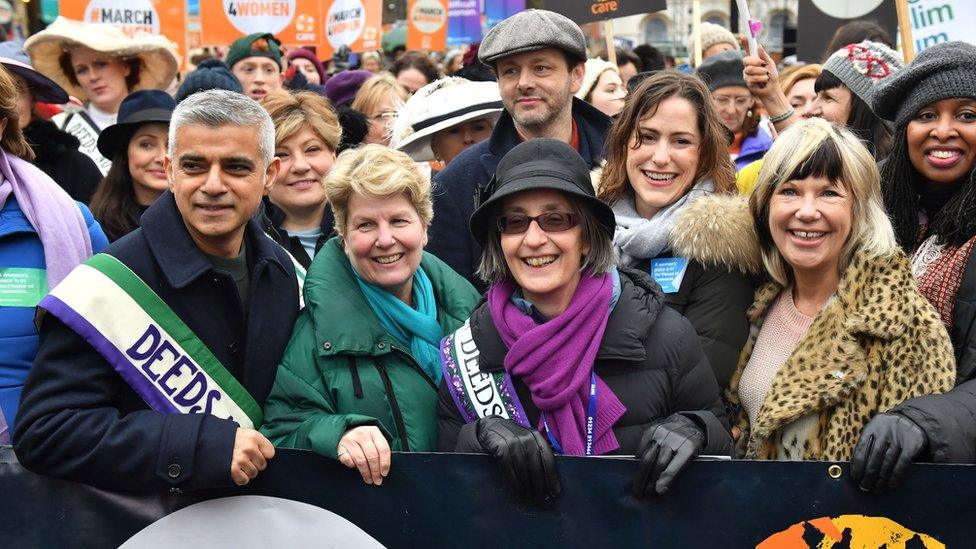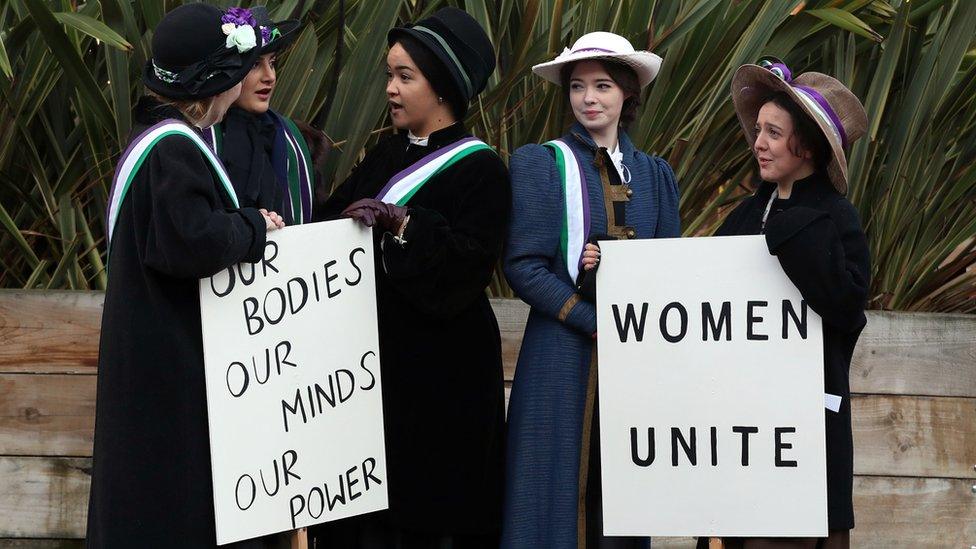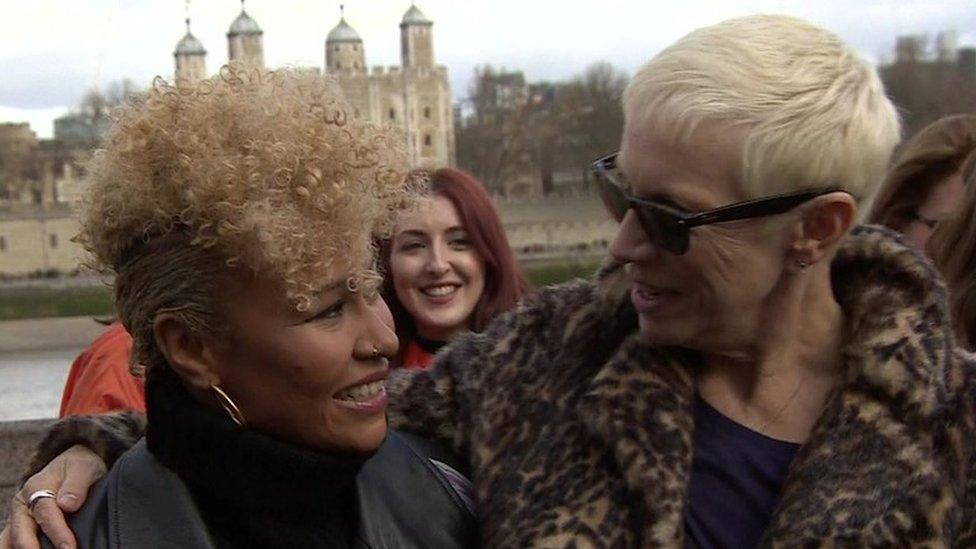Gender equality: Actor Michael Sheen 'would take pay cut'
- Published

Michael Sheen said people must ensure that the campaign "doesn't just remain a moment"
Actor Michael Sheen has said he would "absolutely" take a pay cut if it meant being paid the same as an actress.
Speaking at a March4Women event in London, he said it was "absolutely imperative" that people were "paid the same for doing the same work".
London Mayor Sadiq Khan was among those attending Care International's march promoting gender equality.
It also marked the 100th anniversary of some women getting the vote.
Mr Sheen's comments also come ahead of the 90th Academy Awards, in Los Angeles, where female campaigns #MeToo and #TimesUp are expected to feature prominently.
In October 2017 the New York Times reported allegations that film producer Harvey Weinstein had sexually harassed several actresses, including Rose McGowan and Ashley Judd.
He has denied all allegations of non-consensual sex made against him.
Prime Minister Theresa May tweeted her support to those on Sunday's march, quoting Conservative MP Ken Clarke's description of her as 'a bloody difficult woman'.
Allow X content?
This article contains content provided by X. We ask for your permission before anything is loaded, as they may be using cookies and other technologies. You may want to read X’s cookie policy, external and privacy policy, external before accepting. To view this content choose ‘accept and continue’.

Mr Sheen, whose major roles include Hollywood film Frost/Nixon, said the #MeToo and #TimesUp campaigns showed that there is "clearly a moment happening" but "we have to make sure that this doesn't just remain a moment".
Gender pay gap 'widens for graduates'
He added: "Men and women, both make sure that this goes on into the future to make permanent change.
"We have to look at what the systemic challenges are. Not just if there are individual monsters who have done terrible things.
"We have to each of us look at what our own individual responsibility is."

London mayor Sadiq Khan, left, comedian Sandi Toksvig, and activist Helen Pankhurst at March4Women
Those marching included activist Bianca Jagger and Dr Helen Pankhurst, the great-granddaughter of suffragette Emmeline Pankhurst.
Dr Pankhurst said there was a "great energy" and that "day after day after day there's a media story saying we are not going to tolerate this anymore".
Supporters on the march wore iconic sashes similar to suffragettes in the 1910s, with slogans such as Deeds Not Words and banners reading Bloody Difficult Women.

You may also like:

- Published5 February 2018

- Published6 February 2018

- Published5 March 2017
